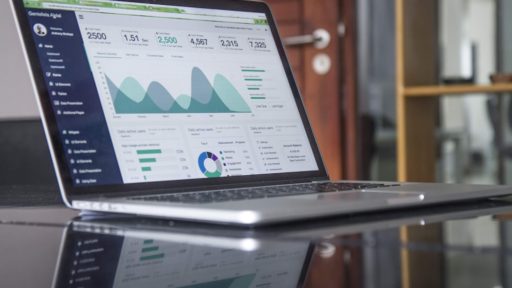Marketing teams are constantly seeking innovative ways to enhance productivity in marketing and drive impactful results in today's competitive landscape. Imagine having a dedicated assistant that automates content creation, optimizes scheduling, and provides real-time insights to supercharge your marketing efforts. In this blog post, we delve into the realm of AI-powered tools that revolutionize how businesses approach marketing tasks, offering efficiency, personalization, and unparalleled capabilities to elevate your marketing strategy.
The Role of AI Assistants in Enhancing Marketing Productivity
How AI Streamlines Marketing Processes
Harnessing the power of AI in marketing can revolutionize the way businesses operate. AI assistants bring a myriad of benefits in enhancing productivity in marketing tasks. Here's how they streamline marketing processes:
-
Automated Content Curation: AI-powered tools can sift through vast amounts of data to curate relevant and engaging content tailored to your target audience. This automation saves time and ensures a steady stream of fresh content.
-
Tailored Scheduling Options: AI assistants analyze historical data and audience behavior to optimize the scheduling of your posts for maximum impact. This strategic scheduling ensures that your content reaches the right audience at the right time.
-
Real-Time Analytics and Insight Generation: AI provides real-time analytics on the performance of your marketing campaigns. By leveraging these insights, marketers can make data-driven decisions to enhance productivity and achieve better results.
In a study by Forbes, it was found that companies using AI for marketing experienced a 60% increase in productivity. This highlights the significant impact that AI assistants can have in enhancing productivity in marketing strategies.
Implementing AI-driven tools not only saves time but also improves the quality and effectiveness of marketing efforts. By leveraging AI assistants for content curation, scheduling, and analytics, businesses can stay ahead of the competition and drive better results in their marketing campaigns.
Key Features of AI Assistants for Enhancing Marketing Productivity
Automated Content CurationAI assistants excel in automating the content curation process by:
-
Utilizing machine learning algorithms to identify trending topics and relevant content for your audience.
-
Personalizing content recommendations based on user preferences and behavior.
-
Streamlining the content discovery process, saving marketers valuable time and effort.
Tailored Scheduling OptionsAI assistants offer tailored scheduling features that enhance marketing productivity by:
-
Analyzing optimal posting times based on audience engagement patterns.
-
Automatically adjusting posting schedules to reach global audiences at peak times.
-
Providing insights into the best times to publish content for maximum impact.
Real-Time Analytics and Insight GenerationAI assistants empower marketers with real-time analytics to optimize campaign performance through:
-
Tracking key performance indicators (KPIs) such as click-through rates and conversions.
-
Generating actionable insights to refine marketing strategies and content.
-
Enabling data-driven decision-making to drive continuous improvement in marketing productivity.
By leveraging these key features of AI assistants, marketers can streamline their workflow, improve efficiency, and achieve greater success in enhancing productivity in marketing campaigns.
Tips for Maximizing Marketing Productivity with AI Assistants
Setting Clear Goals and KPIs
-
Define specific objectives and key performance indicators (KPIs) to measure the impact of AI-driven marketing strategies.
-
Align AI assistant functionalities with targeted goals to optimize productivity and achieve desired outcomes.
Customizing AI Algorithms to Your Brand Voice
-
Personalize AI algorithms to reflect your brand's unique tone, style, and messaging to maintain consistency across all marketing efforts.
-
Ensure that AI-generated content resonates with your target audience by fine-tuning algorithms to mimic human interaction.
Leveraging AI Recommendations for Content Optimization
-
Use AI-generated recommendations for content optimization to enhance engagement and conversion rates.
-
Implement AI insights to refine content strategies, improve audience targeting, and maximize the effectiveness of marketing campaigns.
For further insights on utilizing AI to enhance marketing productivity, you can refer to case studies from industry leaders such as HubSpot. By incorporating these tips into your marketing strategy, you can leverage AI assistants to their full potential and drive significant improvements in productivity and performance.
Challenges and Solutions in Implementing AI for Enhancing Productivity in Marketing
Overcoming Data Privacy Concerns
-
Address data privacy issues by ensuring compliance with regulations such as GDPR.
-
Implement robust data security measures to protect sensitive information handled by AI assistants.
Managing Integration with Existing Software
-
Integrate AI assistants seamlessly with current marketing tools and platforms to optimize workflow efficiency.
-
Conduct thorough testing and training to ensure smooth integration without disrupting existing processes.
Training Teams for Collaborative Work with AI
-
Provide adequate training and resources for team members to effectively collaborate with AI technology.
-
Foster a culture of embracing AI as a supportive tool to enhance productivity and deliver better marketing results.
Navigating these challenges requires strategic planning, continuous monitoring, and a proactive approach to leverage AI for enhancing productivity in marketing effectively. By addressing these obstacles head-on and implementing robust solutions, businesses can maximize the benefits of AI assistants and drive success in their marketing endeavors.
Measuring Success: KPIs and Metrics for AI-Driven Productivity in Marketing
Tracking Engagement Rates
-
Monitor metrics such as likes, shares, comments, and click-through rates to gauge audience engagement with AI-assisted content.
-
Analyze engagement trends over time to assess the effectiveness of AI tools in driving interactions and increasing brand visibility.
Analyzing Conversion Metrics
-
Measure conversion metrics, including lead generation, sales, and customer acquisitions, to evaluate the impact of AI on driving conversions.
-
Attribute conversions to specific AI-driven strategies or campaigns to identify key drivers of success and areas for improvement.
Adjusting Strategies Based on AI Performance Insights
-
Use AI-generated insights and analytics to make data-driven decisions in optimizing marketing strategies.
-
Iteratively refine tactics based on AI performance data to enhance productivity, efficiency, and overall campaign performance.
For a comprehensive understanding of key performance indicators (KPIs) and metrics relevant to AI-driven marketing productivity, refer to resources from industry leaders such as Google Marketing Platform. By actively monitoring and analyzing these metrics, businesses can continuously fine-tune their marketing approach, leverage AI tools effectively, and ultimately achieve greater success in enhancing productivity in marketing.
Enhancing Productivity in Marketing with AI Tools
Automated Content CreationAI tools can help marketers save time and resources by automating content creation processes. Through natural language processing and machine learning algorithms, these tools can generate high-quality content tailored to the brand voice and audience preferences.
-
AI platforms like Adobe Sensei offer advanced content creation capabilities, such as personalized recommendations and automated copywriting.
-
By leveraging AI for content creation, marketers can focus on strategy and creativity while ensuring a consistent and engaging messaging across all channels.
Predictive Analytics for OptimizationAI-powered predictive analytics enable marketers to forecast trends, customer behavior, and campaign performance with greater accuracy. By analyzing vast amounts of data in real-time, AI tools can provide valuable insights to optimize marketing strategies.
-
Tools like IBM Watson use predictive analytics to identify patterns and trends, helping marketers make informed decisions and stay ahead of the competition.
-
Implementing predictive analytics in marketing allows for proactive decision-making, enhanced targeting, and improved campaign ROI.
Personalized Customer ExperiencesAI tools play a crucial role in creating personalized customer experiences, leading to increased customer satisfaction and loyalty. By analyzing customer data and behavior, AI can tailor marketing messages and recommendations to individual preferences.
-
Platforms such as Salesforce Einstein utilize AI to deliver personalized experiences across all touchpoints, fostering stronger customer relationships and driving conversions.
-
Embracing AI for personalization enables marketers to deliver relevant content, increase engagement, and ultimately boost productivity in marketing efforts.
Incorporating AI tools into marketing strategies can significantly enhance productivity, streamline processes, and drive better results. By leveraging automated content creation, predictive analytics, and personalized experiences, businesses can stay competitive in an increasingly digital landscape and deliver exceptional value to their audiences.
How can AI assistants help in enhancing productivity in marketing?
AI assistants can streamline marketing processes by automating tasks like content curation, scheduling, and analytics. They provide personalized recommendations, optimize posting times, and offer real-time insights to improve marketing efficiency.
Are AI tools suitable for small businesses looking to enhance marketing productivity?
Yes, AI tools offer scalable solutions that are beneficial for businesses of all sizes. Small businesses can leverage AI assistants to automate repetitive tasks, gain data-driven insights, and enhance their marketing effectiveness without significant resource investments.
What are the key benefits of using AI in marketing productivity?
Using AI in marketing productivity can result in increased efficiency, personalized customer experiences, data-driven decision-making, optimized content strategies, and improved campaign performance. AI tools streamline processes and help businesses stay competitive in the digital landscape.
How can AI-driven predictive analytics benefit marketing strategies?
AI-driven predictive analytics can forecast trends, identify customer behavior patterns, and optimize marketing campaigns for better performance. By leveraging predictive analytics, marketers can make informed decisions, enhance targeting, and achieve higher return on investment.
Is there a learning curve involved in implementing AI tools for marketing productivity?
While there may be a learning curve initially, AI tools are designed to be user-friendly and intuitive. Many providers offer training resources and support to help businesses ease into incorporating AI into their marketing strategies effectively.






